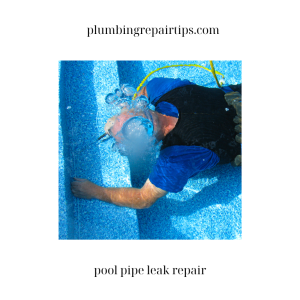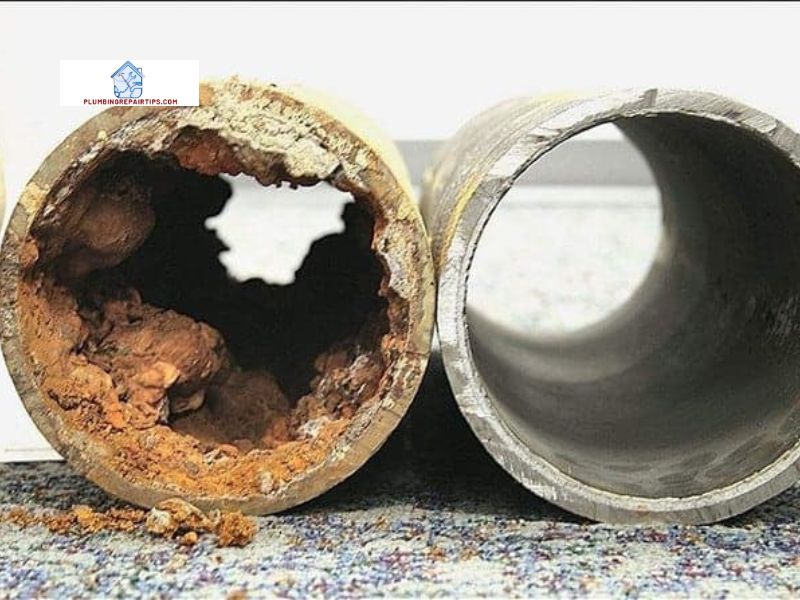Introduction
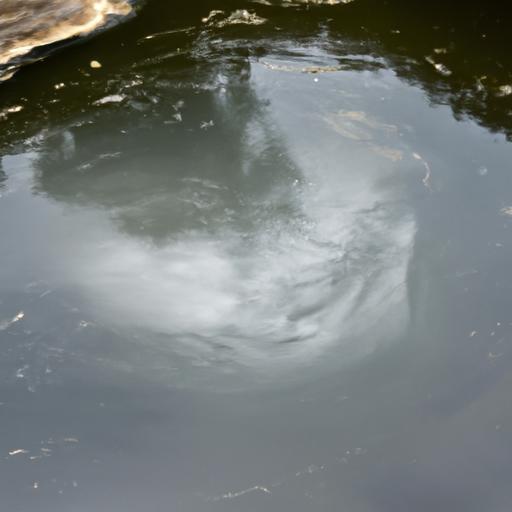
black well water can be a concerning issue for homeowners and communities alike. But what exactly is it, and why is it crucial to address this problem? In this article, plumbingrepairtips.com will delve into the definition of black well water, explore the importance of tackling these issues head-on, and provide an overview of the content that lies ahead.
Definition of Black Well Water
Black well water refers to groundwater that appears dark or black in color due to various contaminants. These contaminants can include minerals, organic matter, bacteria, and even chemical pollutants. When these substances seep into the well water, they can alter its appearance, and taste, and potentially pose health risks.
Importance of Addressing Black Well Water Issues
Addressing black well water issues is essential for several reasons. Firstly, the quality of our drinking water directly affects our health and well-being. Consuming contaminated water can lead to various health problems, ranging from gastrointestinal issues to respiratory complications.
Moreover, black well water can also damage household plumbing systems, appliances, and fixtures. The presence of minerals and other contaminants can cause clogs, corrosion, and staining, resulting in expensive repairs and replacements. By proactively addressing black well water issues, we can safeguard our health, protect our property, and ensure the longevity of our plumbing systems.
Overview of the Article’s Content
In the following sections, we will explore the causes of black well water, the health risks associated with it, methods for testing and detecting contaminants, treatment and prevention options, and conclude with a summary of key points. So, let’s dive deeper into the world of black well water and equip ourselves with the knowledge needed to combat this issue effectively.
Causes of Black Well Water
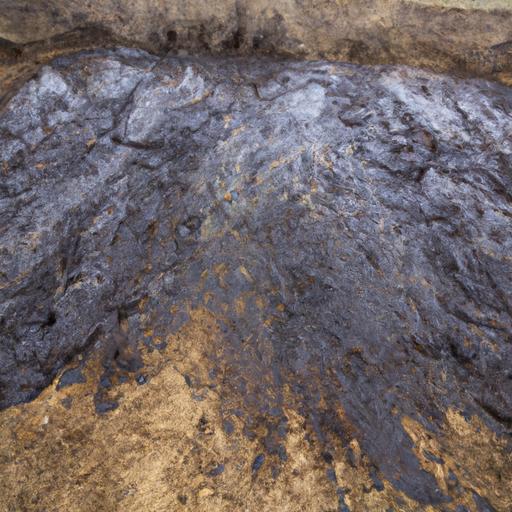
Natural Causes
When it comes to black well water, natural factors play a significant role in its occurrence. Understanding these natural causes can help us identify and address the issue effectively.
Presence of Minerals in the Soil
One of the primary natural causes of black well water is the presence of minerals in the soil. As rainwater percolates through the ground, it comes into contact with various minerals, such as iron and manganese. These minerals can dissolve in the water, leading to a dark or black appearance.
Geological Formations
Geological formations can also contribute to the occurrence of black well water. Certain types of rocks and soil contain high concentrations of minerals, which can leach into the groundwater. As a result, the water extracted from wells in these areas may exhibit a black color.
Human Activities
While natural causes contribute to black well water, human activities can exacerbate the issue. Understanding the impact of these activities is crucial for implementing effective solutions.
Industrial Pollution
Industrial pollution is a significant contributor to black well water. Factories and industrial facilities release various pollutants into the environment, including heavy metals and chemicals. These pollutants can seep into the ground, contaminating the groundwater and turning it black.
Agricultural Practices
Agricultural practices, such as the use of fertilizers and pesticides, can also contaminate well water. When these chemicals are applied to crops, they can infiltrate the soil and find their way into the groundwater. This contamination can lead to the discoloration of well water and pose potential health risks.
Sewage Contamination
Improperly managed sewage systems or septic tanks can contaminate groundwater with harmful bacteria and pathogens. When sewage leaks or overflows, it can seep into the ground and contaminate nearby wells. This contamination can contribute to the black appearance of well water and pose severe health hazards.
By understanding both natural causes and human activities that contribute to black well water, we can take the necessary steps to mitigate these factors and ensure access to clean and safe drinking water.
Health Risks Associated with Black Well Water
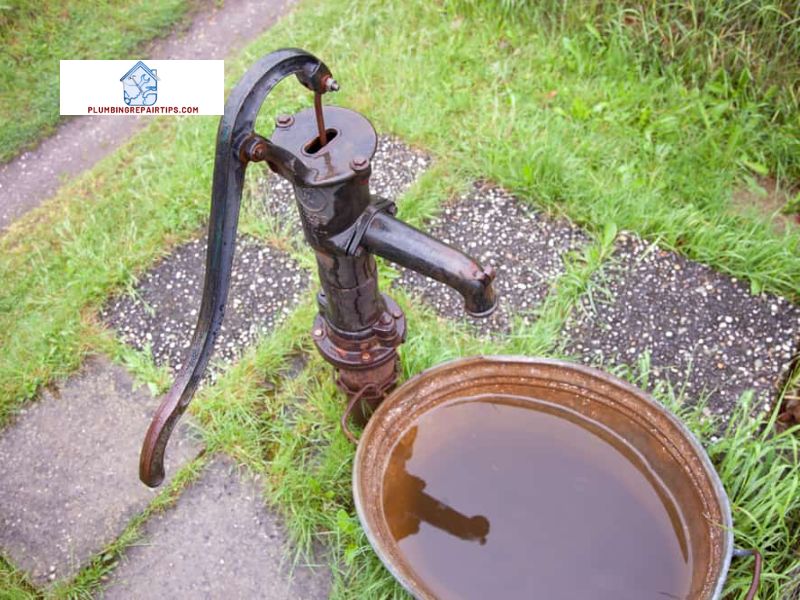
Black well water may contain various contaminants that pose potential health risks to individuals. Understanding the contaminants present and their associated health effects is crucial in addressing the issue effectively.
Contaminants Found in Black Well Water
- Heavy metals: Black well water can contain heavy metals such as lead, arsenic, and mercury. These metals can enter water sources through natural geological processes or human activities like industrial pollution. Prolonged exposure to heavy metals can lead to neurological, developmental, and organ damage.
- Bacteria and viruses: Contamination from bacteria and viruses can occur due to sewage leakage, agricultural runoff, or inadequate well maintenance. Pathogens like E. coli, coliform bacteria, and viruses can cause gastrointestinal illnesses such as diarrhea, nausea, and vomiting.
- Chemical pollutants: Chemical pollutants like pesticides, fertilizers, and industrial chemicals can find their way into well water. Prolonged exposure to these substances can contribute to various health issues, including hormonal disruptions, reproductive problems, and even certain types of cancer.
Potential Health Effects on Individuals
- Gastrointestinal issues: Drinking black well water contaminated with bacteria or parasites can result in gastrointestinal problems such as stomach cramps, diarrhea, and nausea. These symptoms can be particularly severe for vulnerable populations like children and the elderly.
- Skin problems: Exposure to certain contaminants in black well water can lead to skin irritations, rashes, and allergic reactions. Chemical pollutants, for instance, may cause skin dryness, itchiness, or even dermatitis in some individuals.
- Respiratory complications: Inhaling airborne contaminants that evaporate from black well water, such as volatile organic compounds, can contribute to respiratory issues like asthma, bronchitis, and allergies. Those with pre-existing respiratory conditions may experience exacerbated symptoms.
By understanding the potential health risks associated with black well water, we can prioritize actions to ensure the safety and well-being of ourselves, our families, and our communities. In the next section, we will explore methods for testing and detecting contaminants in well water.
Testing and Detection of Black Well Water
Ensuring the safety of your well water is crucial, and regular testing plays a vital role in achieving this. Let’s explore why regular water testing is important and the common methods used for testing and detecting contaminants in black well water.
Importance of Regular Water Testing
Regular water testing is essential to monitor the quality of your well water and detect any potential contaminants. Even if your water appears clear, there might be hidden impurities that could pose health risks. By conducting routine tests, you can identify and address any issues promptly, ensuring the safety of your drinking water.
Common Testing Methods
To determine the quality of your well water, several testing methods are commonly employed:
1. Physical Examination
A physical examination involves observing the color, odor, and clarity of the water. While this method provides some initial insights, it cannot identify specific contaminants or their concentrations. However, it can raise red flags if the water appears discolored or has an unpleasant odor.
2. Chemical Analysis
Chemical analysis is a more comprehensive method that involves testing for specific contaminants such as heavy metals, pesticides, nitrates, and other harmful substances. This process typically requires collecting water samples and sending them to a laboratory for analysis. The results will provide detailed information about the presence and concentration of various contaminants.
3. Microbiological Testing
Microbiological testing focuses on identifying bacteria, viruses, and other microorganisms in the water. This testing method is crucial to ensure the absence of harmful pathogens that can cause waterborne illnesses. It involves collecting water samples and analyzing them for the presence of specific microorganisms.
Professional Water Testing Services
While some homeowners may opt for DIY testing kits, professional water testing services offer a comprehensive and accurate assessment of your well water quality. These services employ advanced laboratory techniques and can provide detailed reports on the specific contaminants present in your water. Consulting with professionals can help you make informed decisions about treatment options and ensure the safety of your well water.
By regularly testing your black well water using reliable methods and seeking professional guidance, you can identify any potential issues and take appropriate actions to safeguard your health and the well-being of your household.
Conclusion
In conclusion, addressing black well water concerns is of utmost importance for the health and well-being of individuals, as well as the longevity of plumbing systems. By understanding the causes of black well water, such as natural factors and human activities, we can take appropriate measures to prevent and treat this issue.
Regular water testing, using methods like physical examination, chemical analysis, and microbiological testing, is crucial to identify contaminants and ensure the safety of well water. Professional water testing services can provide accurate and reliable results, giving homeowners peace of mind.
When it comes to treatment and prevention, filtration systems like activated carbon filters and reverse osmosis systems can effectively remove impurities from well water. Water disinfection methods, such as chlorination and ultraviolet (UV) disinfection, can further ensure the elimination of harmful bacteria and viruses.
Additionally, adopting best practices for preventing black well water issues is essential. Regular maintenance of wells, including inspections, cleaning, and repairs, can help prevent contamination. Proper disposal of waste materials, such as chemicals and sewage, can also contribute to keeping well water clean and safe.
In conclusion, addressing black well water issues requires proactive measures and a commitment to maintaining the quality of our water sources. By taking action to prevent contamination, testing regularly, and investing in appropriate treatment systems, we can ensure the availability of clean and safe well water for ourselves and future generations.
Remember, your health and the health of your plumbing system are interconnected. Take charge of your well water quality and safeguard the well-being of your loved ones and your property.
Bold: plumbingrepairtips.com
